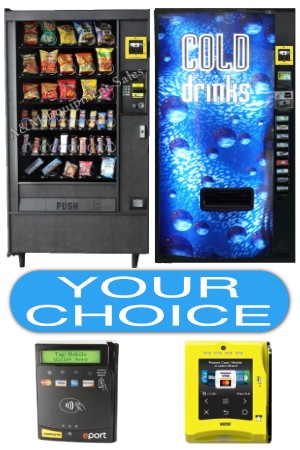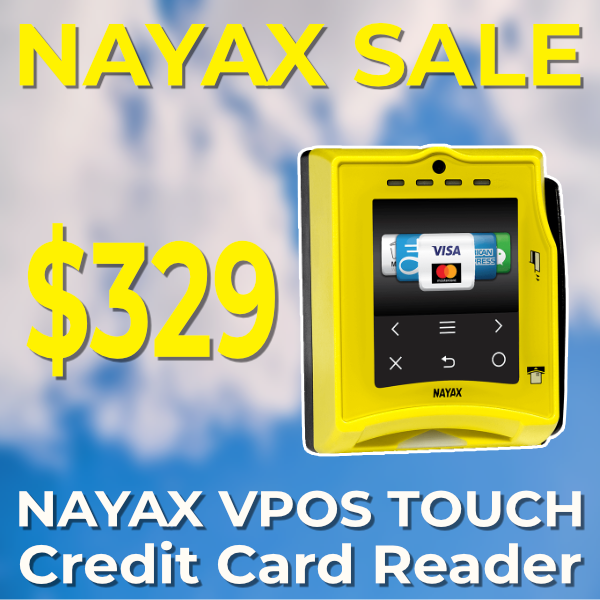AN INTERVIEW WITH LARRY TOWNER, VENDING CONSULTANT.
 Larry is a veteran vending operator who has had great success. Listen in as he answers a few questions:
Larry is a veteran vending operator who has had great success. Listen in as he answers a few questions:
ABOUT VENDING MACHINE PLACEMENT
Larry discusses vending machine placement with tom shivers and answers questions about the following categories:
- The history of the vending industry
- The business hasn’t changed that much since it began in the 50’s
- It is a numbers game
How would you know you’ve got a good location for a vending machine?
- Tips for identifying a good vending account
Larry can be reached at [email protected].
EPISODE TRANSCRIPT:
Tom shivers: I’m Tom Shivers with the Vending Business Show here with Larry Towner who’s been in the vending business for many years and sold the majority share of his vending business a few years ago. He mostly provides consulting now, and in the last show, Larry talked about how to start a vending business. So, thanks for being here, Larry.
Larry Towner: Thanks, Tom. It’s a pleasure.
Tom shivers: Yes, some of the things you went over last time, just briefly, were writing down a business plan, defining your goals, getting an understanding of the numbers, the profit, how much you want to make per machine so you can get to your goal, and you talked a little bit about a part-time scenario. You went over a few sales and things like doing sales calls and getting an account first. Any other tips you want to talk about?
Larry Towner: Well, that’s a good place to start. I think that most of those tips that we gave in the previous shows, really, are great places to start, and I really think we don’t have too much to add to that at this point.
Tom shivers: Another thing we were gonna talk about was is vending a reliable business venture.
Larry Towner: To answer those questions … Well, finish your question there, Tom, for me, and we’ll see where we go with it.
Tom shivers: I mean, is it something that is sustainable? Is it something that is worth the time and effort, and if it is a fit for you, how would you know? What are some things from a veteran vending business operator that would tell us that?
Larry Towner: All right, well, that’s a great place to start. Let’s just take a history lesson on the vending business, and that will give us an idea of how reliable … Basically, we’ll start off with is the market stable. To give you an idea, vending started in the 30s, really, is when it started. It was very rudimentary at that time, and it really exploded in the 50s and into the 60s. And it was in the 60s that there was tremendous growth in the vending industry, and that was when a lot of companies realized … Actually, it had to do with equipment and things like that, but the vending machine industry matured in the 60s, and then it has been growing slowly ever since then.
But to get into the market stability, there always seems to be a market for good, quality vending services out there in the world. They wax and wane a little bit with economic tide. Currently, we’re in a little bit of a downturn, and that’s just a normal economic situation. It’s not a business that’s easily replaced. If you were, oh I don’t know, a computer software engineer, and you worked in some obscure language that I don’t even know, but Basic or something, you’re job has basically been outsourced or it’s gone at this point. It’s been replaced by something that’s newer and better.
The vending industry has been pretty stable for quite a number of years. So, from market stability, there always seems to be a market for vending type services in snack or refreshment services. Some of the products have changed a little bit, but in general, we’re still selling the same basic products today that were sold in the 50s and 60s. Some products have come, and some products have gone and product dimensions have changed. Packaging has changed, but the business itself has not changed all that much. So, the business itself, the market is quite stable.
As far as reliable, it also tends to be a pretty … From a cash flow standpoint, if you go into a commercial type account, which means you’re in someone else’s business providing vending services, the cash flow is actually pretty stable and it’s pretty heavy ability to forecast it with a high degree, because it’s not gonna change all that much week to week, month to month. You’ll have your seasonal variations, meaning in the springtime or in the summertime, you’ll tend to sell more drinks than you do snacks. In the wintertime, you tend to sell more snacks than you do drinks. And then around Christmas, you don’t sell anything pretty much. December always is the worst month for most vending companies, unless you have a large amount of retail where you’re in retail operations where they have large Christmas staffs.
Besides that, the business itself is quite stable on a cash flow basis and as far as products sold. If you do a lot of street vending or vending out in the public-type places, it’s dependent upon the number of people that come in or are in and exposed to your machine. And one thing, too, about the vending industry, it is a numbers game. The more people that are in front of your machines, the more product you will sell, so your object should be to get pretty high volume type accounts if you can.
To answer that question, it is a reliable business. It’s been around for a long time, and it really hasn’t changed all that much throughout the years, and it does quite well.
Tom shivers: What are some of the numbers like you just mentioned there? How would you know that you’ve got a good vending machine placement location? Let’s say how would you know you’ve got a good location for a vending machine?
Larry Towner: Well, the basic benchmark for looking at a vending machine placement there’s some demographics that play. We always broke demographics down into white collar verus blue collar was the first demographic we always looked at. So, we’re looking at a white collar account does about a quarter of what a blue collar account does. Of course, there’s not too many blue collar accounts left in the United States anymore. We’ve outsourced most of our manufacturing off to China, but you still have a lot of blue collar accounts in the construction industry and automotive and things like that, say automotive repair shops and things like that.
That particular customer is largely male. They generally are quite a bit younger. They’re in their younger … Well, they’re under 35 in general, and those are really strong vending type accounts. On the opposite spectrum, older women are not really great vending prospects. So, when you walk into a facility, or you’re looking a facility to put a machine in, if you’re looking at a commercial account, you walk around take a look at who really works there on the commercial side. And if you’re in a street-type location, just sit where you’re thinking about putting a machine and look at the type of people that walk by you.
Children, and I say children, kids anywhere from the age of five up to about 13 or 14 are really strong vending people as long as they come with their parents. You really don’t want young people and teenagers a lot alone, because they tend to vandalize things a lot, so it’s one of things, but if they’re with their parents, that’s good.
But that’s the beginning point of how you determine what determines a good vending account. The other thing is just pure numbers. If you walk into a location and they have 20 people or they have 50 people or they have 200 people, it’s all relative to the basic numbers. So, you want more is usually better, but if you walk into, and it’s a white collar account, say it’s a, I don’t know, a sales office or something like that, and there are a large number of white collar men, you say 100. Well, a good blue collar, say automotive shop with 25 people will do just as much business as that 100 person sales organization where people are in coats and ties. And these are general numbers. It doesn’t always pan out that way, but in general, it’s been my experience and a lot of other people’s experiences as well. This is the kind of thing that you might see.
One other thing that I always took into consideration, I did a lot of vending, I would say, in the outer regions of the metro Atlanta area. So, we were far out. When I looked at accounts, sometimes really tiny, small accounts like, say 25 people or so, could actually surprise you with how much business they did, because in some of these locations, the closest restaurant or the closest convenience store could be two, three, four miles away. In that sense, they had no easy access to any other refreshment source, so they couldn’t just jump in the car and run down the street. Conversely, a place that has a convenience store or a grocery store or whatever that sits right next door, and people can walk to it on their break, that is indirect competition, and they will make that trip. You’d be absolutely shocked.
So, we were really surprised that at some of our locations, because they were out and away from other things, they did very large numbers per capita. We always marked our numbers by the number of people, and they did $4.00 a week per person or $6.00 a week per person or whatever. We always marked it per capita, and when we looked at some of our accounts, because there was nothing around them, they did very large numbers compared to a lot of the other places, because they basically had no choice.
So, those are all considerations that you take into account when you look at a vending account, and those are the things that will tell you whether it’s a good account or not. A lot of when you set a vending account, too, and this is why we say go out and get an account first, is that many of these places don’t necessarily require the latest equipment. So, you can go in with a good piece of refurbished equipment, which is gonna save you several thousand dollars. And since you’re really looking at turning profits, sometimes it depends on your location as to the type of equipment you can put in, and that plays into the operational side along with the financial side.
Sometimes, my philosophy was I tried to put the biggest machines I could into a location, and I did that so that I could reduce my service interval, meaning if I only had to go to an account once a month, it was easier from a service standpoint provided they would turn the product, meaning the sales would [inaudible 00:10:43]. We’ll talk about things like that in another show, but I always try to put the biggest pieces of equipment in there as possible and run long-date type products, and that way I had to visit it less, which really lowered my cost. Because your service cost in newer accounts is very, very high. So, a lot of these things play into looking at what a good thing an account is.
Also, one of the questions that I always ask when I go on a sales call is who is your current vendor, or try to get a sense of how many vendors have they had in the past X number of years, and it just depends. There are accounts out there that flip vending companies every year or every two years, and these are generally, they’re either on a bid-type basis or they’re highly problematic type accounts. Because if they’re looking for a new vendor all the time, why are you gonna be vastly superior to what they already have. They have a cultural mindset of swapping people out all the time, and that can be problematic. In our opinion, or in my opinion, a good vending account is one where you move equipment and it’s there for quite a while. You’re not busy moving equipment all the time. That’s a hidden expense. [inaudible 00:11:52].
That gives you a real general, I mean I can go on for hours on this stuff, but that’s just a general overview of if you’re gonna go in and look, you want to look for large numbers of people. You want to generally look for people who are a little younger, generally blue collar is gonna be better than white collar although not always, but those are the situations. Another demographic thing is is the ethnic groups can be very good. Hispanics do quite well in vending as where Asians do not. So, if you have a large Asian population, in general, vending isn’t gonna be the greatest thing in the world. If you have a large Hispanic population, it can be quite good provided you provide the right product for them, and they’ll tell you.
Tom shivers: Okay, great. Well, I think we’ll wrap that up for now, and next time we’ll talk about what do vending machines cost, and later, we’ll probably get back to the vending location issues that you started touching on there. I know there’s a lot more to finding a good vending location.
Larry Towner: Yeah, there’s whole strategies in types of locations, and also amount of windshield time between stops, and do you go in and do you saturate an area, or do you look for a certain size, and there’s all kinds of strategies for the types of vending accounts, and that actually, well, we’ll tie that up in another show.
Tom shivers: Okay, well, thanks so much, and do you want to mention your consulting business?
Larry Towner: Sure, my company’s name is Service Group International. We’ve done vending and food service consulting, basically, for about 15 years. We can take a lot of start-ups. We like to make sure people understand what they’re getting involved in if they get into the vending businesses. It’s not a business where you’re gonna make millions of millions of dollars with very little effort and things like that. We can be reached at [email protected]. It’s all one word, and we’d love to talk to you. It’s [email protected], and of course, my name’s Larry Towner.
Tom shivers: And you’ve been listening to the Vending Business Show, a publication of A&M Equipment Sales.



